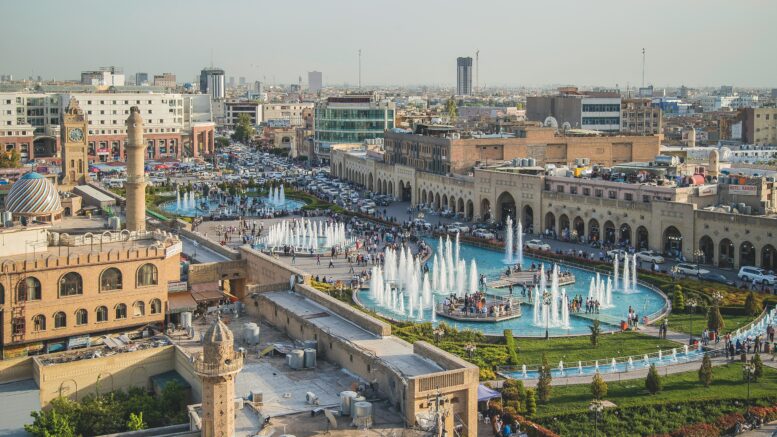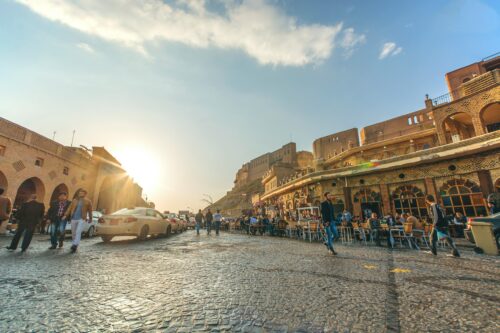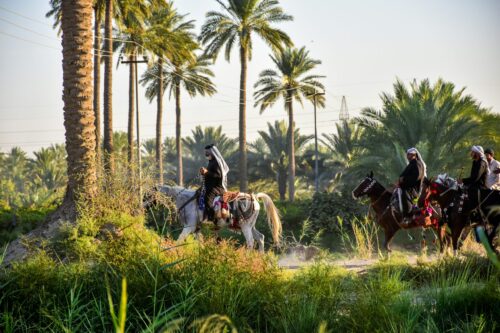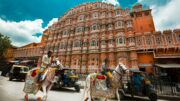There’s something utterly human about seeking beauty in places once broken. Maybe it’s hope. Maybe it’s curiosity. Maybe it’s the irresistible pull of contrast — the allure of standing where history cracked the ground open, only to watch wildflowers bloom there now. Welcome to Iraq. Not the Iraq of headlines, but a country quietly reshaping its identity — from a war-torn nation to a soulful travel destination. Yes, that Iraq.
From Bullet Holes to Babylon
It’s impossible to talk about Iraq without acknowledging its scars. The name alone has long conjured up images of tanks, checkpoints, and unshakable tension. But underneath the rubble lies Mesopotamia, the cradle of civilization — the land of Gilgamesh, Sumerian temples, and ancient cities, where writing, math, and law were born.
Reinvention doesn’t mean erasure — it means layering. Iraq isn’t hiding its past; it’s integrating it. Tourists today can visit the remains of Babylon, with its lion statues and reconstructed Ishtar Gate, and sense the weight of time and resilience. This is no sanitized version of history. It’s raw, it’s real, and it’s being preserved with purpose.
The Art of Hospitality (and Reclaiming Identity)
One of Iraq’s most remarkable traits is its people’s insistence on welcoming strangers. In a world where travelers often complain of tourist fatigue, visitors are still a novelty and treated as honored guests. Locals pour tea with care, tell stories that loop back generations, and guide you through chaotic bazaars like your family.
This isn’t just hospitality; it’s a reclamation. For decades, Iraqis were seen through the lens of conflict. Now, they’re choosing to show you who they really are — artisans, scholars, poets, farmers, and proud stewards of a culture that predates empires.
The Rise of Conscious, Gritty Travel
If you’re chasing a glossy, pre-packaged beach holiday, Iraq is not your destination. But for those drawn to textured, meaningful travel — the kind that gets under your skin — Iraq offers something unforgettable.
More and more adventurous travelers are turning their backs on over-commercialized spots in favor of countries where authenticity hasn’t been bleached out by Instagram. That’s where tours in Iraq are making their mark. Led by locals or region-savvy expats, these tours lean into the country’s contrasts: ancient ruins beside blast walls, roadside kebabs after museum visits, call to prayer echoing across marshland at dusk. It travels with teeth, and that’s exactly why it’s unforgettable.
A Landscape Waiting to Be Loved Again
Iraq’s geography is surprising. The north, with its rolling hills and crisp mountain air in Kurdistan, feels a world away from the sandy stretches of the south. The marshlands near Nasiriyah — once drained by Saddam and now lovingly revived — are wetlands humming with life and mythology. You’ll find water buffalo, floating reed houses, and a deep connection to the Epic of Gilgamesh. Every landscape tells a layered story: nature, politics, survival, and quiet resistance.
And then there are the cities — Baghdad, Mosul, Erbil — each reinventing itself in rhythm with its people. Cafés are reopening. Artists are exhibiting again. And yes, nightlife is stirring — gently, but with unmistakable pride.
Security, Safety, and the Honest Truth
Let’s address the elephant in the room: Is it safe?
The answer is nuanced. No, Iraq is not Switzerland. There are still risks, and travel requires preparation, common sense, and working with trusted guides. However, for many regions, especially in the north and parts of the south, things have stabilized significantly.
In fact, the Iraqi government is now actively encouraging tourism, streamlining visa processes, training local guides, and restoring key historical sites. Safety protocols are evolving fast, and travelers are noticing.
Why This Matters Now
The global travel narrative has long ignored countries like Iraq, reducing them to cautionary tales. But every war zone holds within it a wonderland waiting to be reborn. And when travelers choose to engage with these places — not as saviors, not as thrill-seekers, but as students of culture — they help write a different kind of story.
This isn’t about war tourism. It’s about dignity, curiosity, exchange.
Visiting Iraq today isn’t just about seeing ancient ruins or ticking a box. It’s about participating in a nation’s healing. It’s about bearing witness, asking questions, and letting a place speak for itself instead of being spoken about.
Final Thoughts: What Happens After You Return
Here’s the thing no one tells you: Iraq follows you home. You’ll think about the boy who offered you chai in the middle of a market. The quiet hush over Ur at sunset. The dissonance of ruins and resilience coexisting in the same breath.
Your photos may gather dust, but something inside you shifts permanently. Because wonderlands built from war zones don’t just change the land — they change the visitor too. And if we let them, they just might change the way we see the world.






